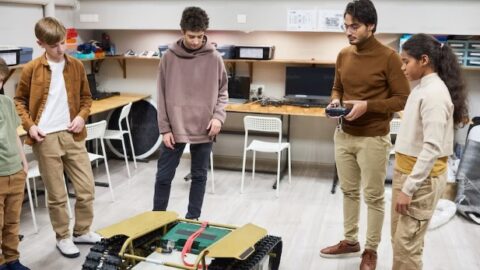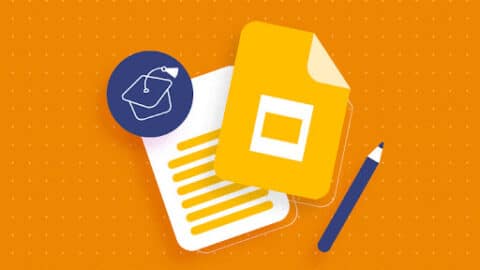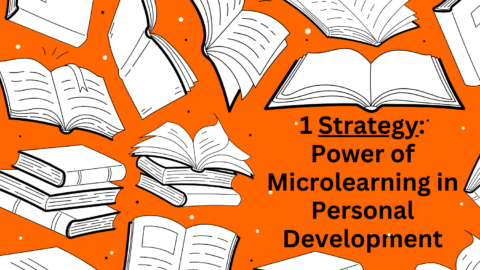Personalized Learning: Tailoring Education with E-Learning Platforms
Are you tired of sitting in a classroom, trying to learn at the same pace as everyone else? Do you ever feel like you need to be more challenged? Well, there’s good news for all the autodidacts: personalized learning with e-learning platforms is here to save the day.
Table of Contents
What is personalized learning, you ask? Simply put, it’s an approach to education that tailors learning experiences to meet the specific needs of each student. This uses technology and data analysis to track progress and provide content and instruction that aligns with each student’s unique learning style.
Custom e-learning platforms have revolutionized how we learn today. These tools enable learners to access knowledge-rich content anytime and anywhere they want. The push towards digitalization has seen an escalation in virtual classrooms that offer students easy access to study materials without the need for brick-and-mortar institutions.
1. Personalized Learning Accommodates Differences
Students vary greatly in terms of their interests, abilities, and challenges. Some students gravitate towards visual information, while others prefer text-based information. Some work better independently, while others thrive collaboratively.
Personalized e-learning can present information in a format that best suits each student’s unique preferences. Educators can tailor their programs to individual learners’ strengths instead of lecturing whole classes for hours. There are no longer slow or fast learners since all lessons will be customized accordingly.
2. Personalized Learning Encourages Interactivity
Custom e-learning allows instructors’ messages through high-quality media such as engaging videos or animations instead of bulky texts written on boards or slideshows filled with texts. Through interactive features such as colorful images, gamification options like quizzes and puzzles challenge students regularly and keep them engaged throughout lectures.

3. Engaging and Effective Method of Learning
Learning by choice and preference makes learning stick with students since they enjoy personalized lessons. E-learning platforms allow a fun and intuitive approach to learning that can facilitate the development of student’s critical thinking skills. Customizing courses keeps students interested, promotes decision-making, and develops independence, responsibility, grit, and resilience.
4. Easy Monitoring And Evaluation Of Progress
With custom e-learning platforms come built-in assessment features, including quizzes or tests that are graded automatically. These online assessments provide real-time feedback allowing educators no more wait time between grading and getting results.
With the help of data analysis tools with their algorithms that distinguish trends concerning performance levels and progress patterns across whole classes or individuals. Hence, the teacher assigns projects accordingly.
In addition to standardization benefits inherent within recognizing achievement digitally through reporting applications which can make class achievement a lot easier to track, making it easy for educators to identify those who need extra support.
The Power Of Personalization of Learning On The Rise
Let’s look at how personalized learning makes a difference; consider two examples:
Example 1: John is an EFL (English as a Foreign Language) student needing help with speaking fluently. His school subscribes him to an e-learning platform where he receives specific speaking materials based on his current level displayed through the language proficiency test he was required to take before starting on the forum.
Over time, with this individualized content according to his interests filled up in interactive videos during office hours when he’s not familiarizing himself with the spoken language — hoping one day John could be fluent enough without requiring any special assistance beyond what is provided digitally.
Example 2: Sarah studies psychology and has always been curious about investigating human behavior using science. Her professor recommends her an advanced version of neuroscience e-learning platforms where she gets access to labs remotely. She can work on experiments solely from home by analyzing data given throughout each experiment using personalized analyses of her results—no more time she spends waiting around labs or having to work in groups. Sarah has the freedom to explore psychological theories according to her pace.
It’s easy to imagine how different these students’ educational journeys may have been if they had only relied on classroom instruction which limits learning experiences. Instead, personalized learning fits students like a hand-me-down coat — comfortable and well-fitted.
How Personalization In E-Learning Boosts Motivation
Custom e-learning is personal because it distributes tailored lesson plans that meet individual needs. It enables teachers and learners access to relevant and timely information; lessons are easily modified significantly when growing classrooms that demand customization at scale. Once students notice their progress, they will strive harder towards academic attainment for two reasons:
1. High Student Engagement Levels
Custom e-learning content nudges learners outside of their comfort zones through new challenges resulting in high engagement levels since the materials present are suitable for specific interests guiding curiosity and motivation tendencies even further.
2. Ownership and Autonomy Over Learning Materials
The student becomes more invested in their education since customizable content ensures ownership and learner autonomy over materials studied – leading them down an academic trajectory uniquely fitted according to specific preferences.
Moreover, customized online courses often motivate people with timely feedback delivered clearly within intuitive interfaces, increasing satisfaction and overall confidence.

Drawbacks of Custom E-Learning Outweigh The Benefits?
Some individuals argue against customizable e-learning platforms drawing attention to the long-term drawbacks that these might present.
- Costly Investment – one hurdle right off the bat would be how much it costs (usually, companies need large budgets). But considering long-term sustainability gains ensured by large-scale digitization, good return on investments could lead us ahead.
- Digital Divide – The lack of blanket access provided throughout society where infrastructure isn’t developed. This is prominently an issue in developing nations and those fraught with internal/external conflict.
Some people can be left behind without proper inclusion policies or infrastructure due to the digital divide. However, this real danger is not an argument against custom e-learning per se. It’s a broader concern that policymakers must address.
Conclusion on Personalized Learning Experience
Custom e-learning will significantly influence teaching methodologies, giving rise to innovative and efficient content delivery. Personalization in educational systems ensures students’ engagement, enhancing knowledge retention and creating individual education plans catering to the different needs of each learner per class. The downside here is only traced back through economic restrictions or insufficient infrastructure but these are social issues more profound than just discussing e-learning solutions.
Nonetheless, I firmly believe within our lifetime — personalized learning will transform beyond academics alone and ultimately becomes relevant for all individuals alike. With customizable lessons and tailored exercises, learning environments become even more effective, enabling learners’ autonomy and leading down academic paths uniquely fitted to their preferences.

Brantlee Bhide is a project manager at HB Consultancy. She has 16 years of experience working as a project professional across varying industries, countries, and cultures. She operates in both business and technical domains using an approach that she developed.










